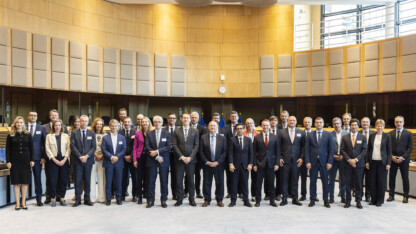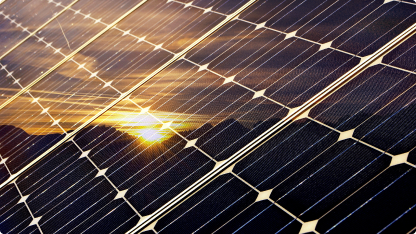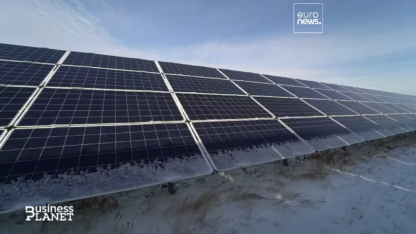New data from European Solar PV Industry Alliance members forecasts that the industry is on track to build over 30 GW of annual manufacturing capacity across the PV value chain, with more than 20 new PV pipeline projects. However, ambitions will only be realised with assertive action and policy support.
The European Solar PV Industry Alliance (ESIA) launched by the European Commission, with EIT InnoEnergy as Secretariat, joined by SolarPower Europe and the European Solar Manufacturing Council on the alliance’s Steering Committee, has revealed that Europe with the right policy support can exceed the EU’s 30 GW annual PV manufacturing capacity goal by 2025. Based on data collected from members of the ESIA as of June 2023, it has been determined that Europe could surpass the target of 30 GW in polysilicon production, ingots, cells and modules manufacturing respectively. These projections are derived from business figures from over 20 new PV pipeline projects, with further announcements expected in future.
The findings come as the ESIA, formed less than a year ago (December 2022), revealed its working groups’ comprehensive action plan at Intersolar Europe in Munich. The action plan brings together expertise from over 120 organisations across 17 countries within Europe’s solar PV value chain to progress work in four key areas: non pricing criteria, supply chain challenges, financial instruments, and skills, with several initial outputs already brought to the European Commission for further discussion.
Closing the gap on international competitiveness
A key focus of the action plan is improving international supply chain competitiveness and considerations including energy costs, sustainability, recycling, and traceability. An analysis to close the gap in European PV value chain OPEX and CAPEX costs and those experienced in other parts of the world has been completed and will now serve the exploration of possible financial instruments to stimulate growth.
The action plan also proposes non price criteria to bring forward Best-in-Class solar with strong environmental, social and governance credentials as well as actions to address gaps in the value chain, recyclability training and education, attractiveness and awareness, and mobility to ensure sufficient availability of talent.
Kerstin Jorna, Director-General of the Directorate-General for Internal Market, Industry, Entrepreneurship and SMEs, European Commission, commented: “The Commission strongly supports the European Solar PV Industry Alliance’s mission to boost solar PV manufacturing in the EU. As set out in the Net-Zero Industry Act, our goal is to overcome regulatory obstacles that hinder the expansion of net-zero technologies, with solar PV being a vital component, ultimately enhancing the EU’s energy resilience and competitiveness. By harmonising permitting for PV gigafactories and smaller PV manufacturing facilities across the internal market, the Net-Zero Industry Act will promote investment certainty. Furthermore, the recently updated Temporary Crisis and Transition Framework complements the upcoming Net-Zero Industry Act by allowing governments to provide support for investments throughout the net-zero supply chains. To accomplish our objective of achieving a solar PV manufacturing capacity of 30GW across the entire supply chain in the EU by 2025, we must capitalise on this new policy framework. And in this endeavour, the European Solar PV Industry will play a pivotal role.”
Javier Sanz, ESIA Secretariat lead, added:
“We are thrilled to witness the remarkable strides made by the EU Solar PV Industry Alliance, as we unveil action plans for each of its working groups. The alliance’s members have shown immense dedication and a spirit of collaboration, all of which are propelling a renaissance within the Solar PV industry in Europe.”
“These action plans aim to empower solar industry manufacturing in Europe through leveraging more projects across all PV value chains, in order to bolster the continent’s energy security and enhance its overall resilience.”
Detailed action plans across non-pricing, supply chain, financing, and skills
Since December 2022, the industry has been working side by side to begin tackling the key actions defined in ESIA’s original plan. The respective actions for each of the working groups are:
Non-pricing conditions / Demand Side Policies Working Group
The Non-Pricing working group will seek to define a set of non-price criteria that give effective market signals for solar systems produced in Europe, without impacting the pace and cost-effectiveness of solar PV deployment. Key areas of the action plan include:
- Create segments of demand for high-quality PV European products.
- Proposals for a bonus system for public procurement focused on environmental sustainability (including carbon footprint and recycled content), social and governance aspects (such as worker’s rights and job creation), innovation, and EU share of economic value from PV products.
- Apply a non-price criteria in public and private procurement.
Supply chain Working Group
In order for the European PV manufacturing supply chain to enhance resilience competitively, set sustainable standards and rebuild of the equipment supply industry, the Supply Chain working group has developed proposals to:
- Adapt legislation on energy price regulation for energy intensive industries of strategic importance for Europe.
- Explore regulatory and policy solutions to tackle issues around Chinese solar glass particularly around antimony limits and their impacts on recyclability and CO2 levels.
- Replace the existing methodology (Product Environmental Footprint Category Rules) with Electronic Product Environmental Assessment Tool (EPEAT) criteria, recently launched for PV modules by the Global Electronic Council (GEC), which will provide stronger carbon footprint credentials.
- Set up a Net Zero Industry Act resilience bonus system.
Financing Working Group
In order to deliver on the EU’s green deal goals, the right conditions need to be created so that the solar industry can flourish. To that end, the work of the Financing working group has highlighted two main areas of the action plan:
- Identification of current gaps (both OPEX and CAPEX) compared to subsidy schemes in China and the US across the complete value chain (including supply of equipment and materials).
- Proposals to strengthen and accelerate financing support and mechanisms. Current solutions under consideration include: adapting existing instruments, replications of the US’ Inflation Reduction Act or the European Chips Act for the PV industry, providing strategic project support, and a “Solar Bank” double-sided auction approach.
Skills Working Group
Re-shoring 30 GW of solar PV manufacturing to the EU will require up to 50,000 new, skilled workers including the up and re-skilling of 30,000 workers by 2027. Key objectives of the action plan include:
- Development of an EU-wide skills road map including curriculum requirements, certification schemes, and training accreditation processes.
- Creation of a Solar Academy to allow wider access to new curricula and remote upskilling.
- Identify and synergise with similar European Commission and Member States Initiatives, EU programmes, and Pact for Skills.
Created by the European Commission in December 2022, with more than 120 members across 17 countries, the ESIA supports the growth of a European industry that is developing and commercialising breakthrough solar PV technologies along the whole value chain, leading to more innovative, efficient, circular and sustainable products, and making the EU’s climate and energy objectives more attainable.
Full details of the plan and next steps can be found here.




